Filter by

Arbeits(un)fähigkeit herstellen
As most industrialised countries, Switzerland is increasingly attempting to (re)integrate people with health restrictions and disabilities into the job market. The reinforced political demand to reintegrate people with health restrictions challenges both the involved organisations and its employees. While the means and methods to assess (in)capacity for work are more and more refined, the accor…
- Edition
- -
- ISBN/ISSN
- 9783037777237
- Collation
- -
- Series Title
- -
- Call Number
- 300

The Juggler of Notre Dame and the Medievalizing of Modernity: Volume 3 The A…
This ambitious and vivid study in six volumes explores the journey of a single, electrifying story, from its first incarnation in a medieval French poem through its prolific rebirth in the nineteenth and twentieth centuries. The Juggler of Notre Dame tells how an entertainer abandons the world to join a monastery, but is suspected of blasphemy after dancing his devotion before a statue of the M…
- Edition
- -
- ISBN/ISSN
- 9781783745234
- Collation
- -
- Series Title
- -
- Call Number
- -

The Juggler of Notre Dame and the Medievalizing of Modernity: Volume 2 Medie…
"This ambitious and vivid study in six volumes explores the journey of a single, electrifying story, from its first incarnation in a medieval French poem through its prolific rebirth in the nineteenth and twentieth centuries. The Juggler of Notre Dame tells how an entertainer abandons the world to join a monastery, but is suspected of blasphemy after dancing his devotion before a statue of the …
- Edition
- -
- ISBN/ISSN
- 9781783745081
- Collation
- -
- Series Title
- -
- Call Number
- -

The Juggler of Notre Dame and the Medievalizing of Modernity: Volume 1 The M…
"This ambitious and vivid study in six volumes explores the journey of a single, electrifying story, from its first incarnation in a medieval French poem through its prolific rebirth in the nineteenth and twentieth centuries. The Juggler of Notre Dame tells how an entertainer abandons the world to join a monastery, but is suspected of blasphemy after dancing his devotion before a statue of the …
- Edition
- -
- ISBN/ISSN
- 9781783744350
- Collation
- -
- Series Title
- -
- Call Number
- -
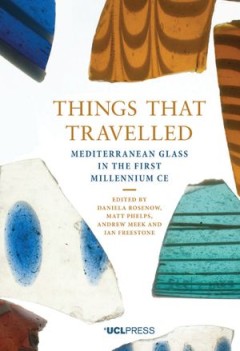
Things that travelled-Mediterranean Glass in the First Millennium CE
Recent research has demonstrated that, in the Roman, Late Antique, Early Islamic and Medieval worlds, glass was traded over long distances, from the Eastern Mediterranean, mainly Egypt and Israel, to Northern Africa, the Western Mediterranean and Northern Europe. Things that Travelled, a collaboration between the UCL Early Glass Technology Research Network, the Association for the History of Gl…
- Edition
- -
- ISBN/ISSN
- 9781787351172
- Collation
- -
- Series Title
- -
- Call Number
- -
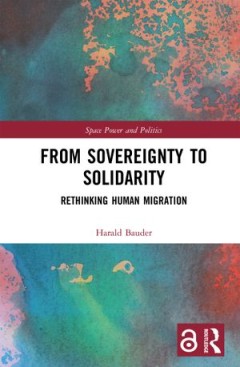
From Sovereignty to Solidarity Rethinking Human Migration
From Sovereignty to Solidarity seeks to re-imagine human mobility in ways that are de-linked from national sovereignty. Using examples from around the world, the author examines contemporary practices of solidarity to illustrate what such a conceptualization of human mobility looks like. He suggests that urban and local scales, rather than the national scale, is a better way to frame human migr…
- Edition
- -
- ISBN/ISSN
- -
- Collation
- -
- Series Title
- -
- Call Number
- -

From Seascapes of Extinction to Seascapes of Confidence
From Seascapes of extinction to seascapes of confidence. Territorial Use Rights in Fisheries in Chile: El Quisco and Puerto Oscuro by Gloria Gallardo Fernandés is an important contribution to our understanding of the multifaceted challenges underlying sustainable solutions to ecological fisheries, the book describes how, in Chile, indiscriminate harvest of the edible shellfish Concholepas co…
- Edition
- -
- ISBN/ISSN
- 9781315159829
- Collation
- -
- Series Title
- -
- Call Number
- -
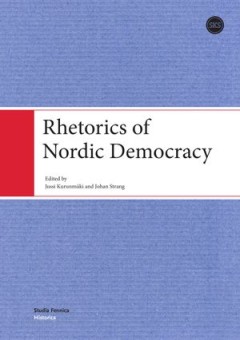
Rhetorics of Nordic democracy
Democracy is today a concept that is overwhelmingly positively evaluated almost everywhere. A lot has been written about socio-economic and cultural backgrounds of democratic regimes as well as their institutional settings. By contrast, not much is known about the political manoeuvres and speech acts by which 'democracy' has been tied to particular regions and cultures in concrete historical si…
- Edition
- -
- ISBN/ISSN
- 9789522222282
- Collation
- -
- Series Title
- -
- Call Number
- 321.8 RHE r
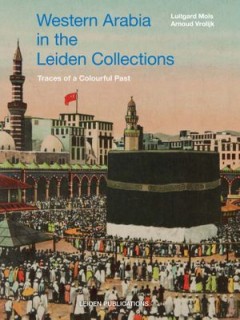
Western Arabia in the Leiden Collections. Traces of a Colourful Past
"In the late nineteenth and early twentieth century Dutch diplomats, scholars and travellers assembled unique collections in Jeddah, Mecca and Medina. The Dutch presence in Arabia, where they established a consulate in Jeddah, was intimately connected with the supervision of the annual pilgrimage to Mecca from the Netherlands East Indies, present-day Indonesia. Notable guests at this consulate …
- Edition
- -
- ISBN/ISSN
- 9789087282592
- Collation
- -
- Series Title
- -
- Call Number
- 297 MOL w
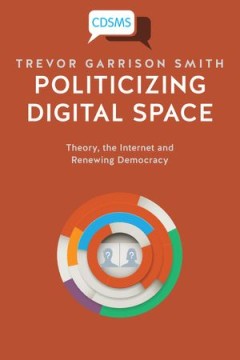
Politicizing Digital Space
"The objective of this book is to outline how a radically democratic politics can be reinvigorated in theory and practice through the use of the internet. The author argues that politics in its proper sense can be distinguished from anti-politics by analyzing the configuration of public space, subjectivity, participation, and conflict. Each of these terrains can be configured in a more or less …
- Edition
- -
- ISBN/ISSN
- 9781911534402
- Collation
- -
- Series Title
- -
- Call Number
- -
 Computer Science, Information & General Works
Computer Science, Information & General Works  Philosophy & Psychology
Philosophy & Psychology  Religion
Religion  Social Sciences
Social Sciences  Language
Language  Pure Science
Pure Science  Applied Sciences
Applied Sciences  Art & Recreation
Art & Recreation  Literature
Literature  History & Geography
History & Geography